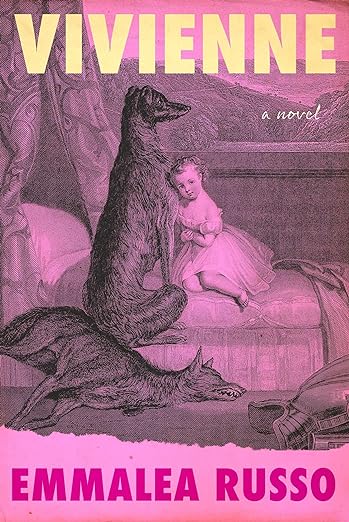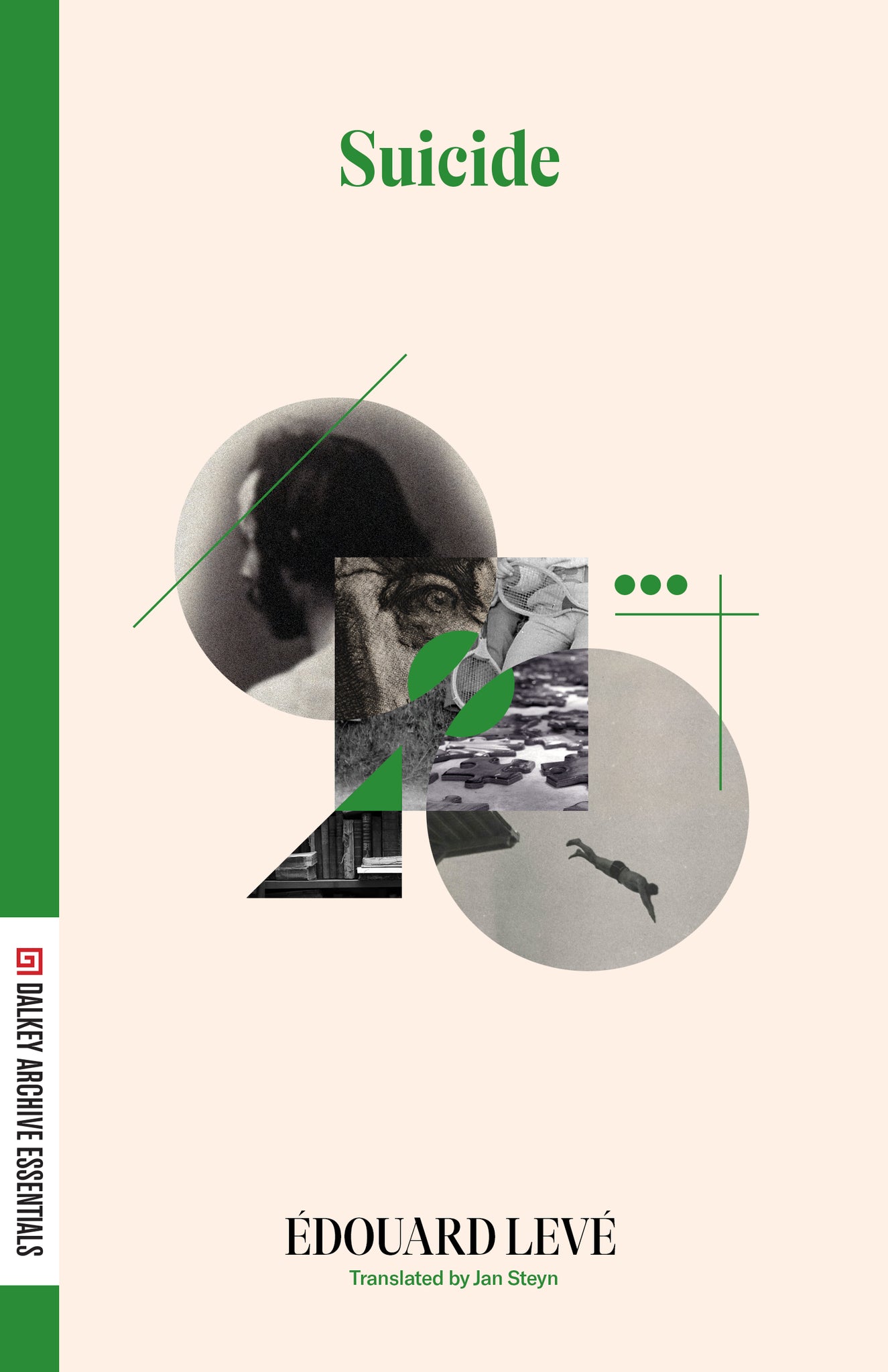 Russo’s Vivienne is an off-putting montage that attempts to answer what art has to atone for, or whether it has anything left to offer at all. Women who are childish, nearly opaque, and naturally mildly misandrist are a rare and treasured sighting that I am delighted to have been granted.
Russo’s Vivienne is an off-putting montage that attempts to answer what art has to atone for, or whether it has anything left to offer at all. Women who are childish, nearly opaque, and naturally mildly misandrist are a rare and treasured sighting that I am delighted to have been granted.
Tag: fiction
A review of The Current Fantasy by Charlie Haas
 That Haas is a successful screenwriter (Gremlins 2), comes through in the novel’s vivid and cinematic details. Every step of the way you participate in the sights, sounds, smells and real challenges of building a commune. At one desperate point, Benji bicycles from San Bernardino to Los Angeles, a remarkably believable trip.
That Haas is a successful screenwriter (Gremlins 2), comes through in the novel’s vivid and cinematic details. Every step of the way you participate in the sights, sounds, smells and real challenges of building a commune. At one desperate point, Benji bicycles from San Bernardino to Los Angeles, a remarkably believable trip.
A review of Ischia by Gisela Heffes
 The story quickly transitions though as we’re carried by a bird and further out and down the rabbit hole via layered patterns of dissociative travel. Ischia encounters a dizzying array of wild circumstances which challenged my conception of the bounds of traditional storytelling.
The story quickly transitions though as we’re carried by a bird and further out and down the rabbit hole via layered patterns of dissociative travel. Ischia encounters a dizzying array of wild circumstances which challenged my conception of the bounds of traditional storytelling.
A review of Suicide by Édouard Levé
 The narration in particular demonstrates Levé’s artistry. The book’s speaker addresses his friend, recounting a wide range of events, conversations, and thoughts that took place before the suicide. But wait—he, the narrator, is recounting incredibly specific details about his friend’s life, quoting conversations, explaining worries and trains of thought that his friend, not the narrator, experienced.
The narration in particular demonstrates Levé’s artistry. The book’s speaker addresses his friend, recounting a wide range of events, conversations, and thoughts that took place before the suicide. But wait—he, the narrator, is recounting incredibly specific details about his friend’s life, quoting conversations, explaining worries and trains of thought that his friend, not the narrator, experienced.
A review of Sentence by Mikhail Iossel
 The stories in Sentence thrive in the midst of foreclosed freedoms, a confining environment but never without a sense of curiosity and interest. Sentence may forego periods for the brief spaces allowed by commas, but the narratives are well-structured, darkly humorous, nostalgic, investigative in regards to the surreality of trauma, survivor guilt and paranoia.
The stories in Sentence thrive in the midst of foreclosed freedoms, a confining environment but never without a sense of curiosity and interest. Sentence may forego periods for the brief spaces allowed by commas, but the narratives are well-structured, darkly humorous, nostalgic, investigative in regards to the surreality of trauma, survivor guilt and paranoia.
A review of A Stranger Comes to Town by Lynne Sharon Schwartz
 Schartz’s prose dazzles as we accompany Joe on his sleuthing. Early in the novel, he considers people seen from his apartment window: “Lots of people looked respectable, but weren’t, and how did I know this? From childhood, somehow. And what did respectable mean anyway? For all I knew I’d spent time in prison.”
Schartz’s prose dazzles as we accompany Joe on his sleuthing. Early in the novel, he considers people seen from his apartment window: “Lots of people looked respectable, but weren’t, and how did I know this? From childhood, somehow. And what did respectable mean anyway? For all I knew I’d spent time in prison.”
A review of Count Luna by Alexander Lernet-Holenia
 The influence of Dracula on both popular and literary culture goes on and on. That there are tons of awful movies out there, and many novels not worth mentioning, goes without saying. Yet every so often, a book comes along that is a true wonder. It glimmers with a unique identity while leaving little doubt as to its thematic pedigree. One such work is the Austrian poet Alexander Lernet-Holenia’s 1955 short novel Count Luna, which New Directions has released in a fine translation by Jane B. Greene.
The influence of Dracula on both popular and literary culture goes on and on. That there are tons of awful movies out there, and many novels not worth mentioning, goes without saying. Yet every so often, a book comes along that is a true wonder. It glimmers with a unique identity while leaving little doubt as to its thematic pedigree. One such work is the Austrian poet Alexander Lernet-Holenia’s 1955 short novel Count Luna, which New Directions has released in a fine translation by Jane B. Greene.
A review of Mermaids and Musicians by Diane Frank
 A cellist for over eighteen years with the Golden Gate Symphony, Diane Frank writes about music with profound authority. Her deep understanding, knowledge and love of music in all its forms is evident throughout, whether it’s dissecting the Beethoven Quartets or describing the subtle performance of vibrato on a cello or delighting in banjo and fiddle tunes at a dance where people are waltzing, clogging, dancing contras. Her lyrical style is as elusive and rousing as the music in which she luxuriates.
A cellist for over eighteen years with the Golden Gate Symphony, Diane Frank writes about music with profound authority. Her deep understanding, knowledge and love of music in all its forms is evident throughout, whether it’s dissecting the Beethoven Quartets or describing the subtle performance of vibrato on a cello or delighting in banjo and fiddle tunes at a dance where people are waltzing, clogging, dancing contras. Her lyrical style is as elusive and rousing as the music in which she luxuriates.
The Tragedy of Righteousness: On Claire Daverley’s Talking at Night
 “I know it seems like I didn’t choose you, ever, Rosie says, when all I wanted was to choose you.” Will and Rosie’s commitment is honest, low-key, and earned. The frustrations of two fallible people trying to do it right make Talking At Night a worthwhile read, A fragile, fierce meditation on love, restraint, and what it means to be chosen, seen, and loved selflessly.
“I know it seems like I didn’t choose you, ever, Rosie says, when all I wanted was to choose you.” Will and Rosie’s commitment is honest, low-key, and earned. The frustrations of two fallible people trying to do it right make Talking At Night a worthwhile read, A fragile, fierce meditation on love, restraint, and what it means to be chosen, seen, and loved selflessly.
A review of Room on the Sea: Three Novellas by André Aciman
 These overwrought overthinking characters, some dubious, some convinced at the get-go by the gentleman’s parlor tricks, are epic romantics. You might even say emotional vampires. Back and forth between alternate lives on the Amalfi coast, and in New York City (where London Terrace apartments and the High Line figure mightily), these folks dive deep into their projections and unslaked thirst for completion.
These overwrought overthinking characters, some dubious, some convinced at the get-go by the gentleman’s parlor tricks, are epic romantics. You might even say emotional vampires. Back and forth between alternate lives on the Amalfi coast, and in New York City (where London Terrace apartments and the High Line figure mightily), these folks dive deep into their projections and unslaked thirst for completion.